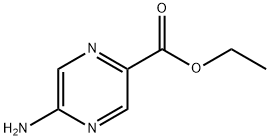Hi, I was wondering why titanium dioxide is added to sunscreen if it is harmful? What is the purpose of adding titanium dioxide?
What is Titanium Dioxide in Sunscreen?
Related Products More >
-
- CNY Request For Quotation
-
- CNY Request For Quotation
-
- CNY Request For Quotation
-
- CNY Request For Quotation
-
- CNY Request For Quotation
-
- CNY Request For Quotation
-
- CNY Request For Quotation
-
- CNY Request For Quotation



 沪ICP备2021018848号-5
沪ICP备2021018848号-5

TiO2 exists in various crystalline forms, with rutile being the most common in sunscreen due to its strong UV-blocking capabilities. When formulated in nano-sized particles, titanium dioxide offers enhanced protection with less product, making it highly effective in sunscreen.
Unlike chemical sunscreens, titanium dioxide is less likely to cause skin irritation or allergic reactions, making it a suitable choice for individuals with sensitive skin. Additionally, its stability ensures that it maintains its protective properties over time.
Broad-Spectrum UV Protection
Reflection and Scattering: TiO2 functions primarily by physically reflecting and scattering ultraviolet (UV) radiation. This means that instead of absorbing UV rays, it acts as a physical barrier on the skin, bouncing the harmful rays away.
UVA and UVB Coverage: It effectively shields against both UVA rays, which penetrate deeply into the skin and can cause long-term damage like premature aging and skin cancer, and UVB rays, which are responsible for sunburns and also contribute to skin cancer risk.
Stability and Photoprotection
Photostability: TiO2 is highly photostable, meaning it does not degrade under sunlight exposure. This ensures consistent protection throughout the day without losing efficacy.
Chemical Inertness: Its chemical inertness makes it less likely to react with other ingredients in the sunscreen formula, contributing to a stable product.
Safety and Skin Compatibility
Non-Irritating: TiO2 is generally considered safe and non-irritating for most skin types, making it suitable for sensitive skin and children.
Mineral-Based Protection: As a mineral-based ingredient, it offers an alternative to chemical UV filters, which some individuals may prefer or need due to sensitivities or preferences for natural products.
Regulatory Approval
FDA and Other Agencies: TiO2 is approved by regulatory bodies such as the U.S. Food and Drug Administration (FDA) and the European Commission for use in sunscreen products, ensuring its safety and effectiveness when used as directed.
In modern sunscreens, titanium dioxide is often used in nanoparticle form. Nano - sized particles allow for a more even spread on the skin and reduce the appearance of a thick, white residue that was common with larger - sized particles. This size also enhances its ability to scatter ultraviolet rays effectively. Sunscreen manufacturers carefully formulate products with titanium dioxide, combining it with other ingredients like emollients for smooth application, and preservatives to ensure product longevity.
The benefits of titanium dioxide in sunscreen are numerous. It is generally well - tolerated by most skin types, including sensitive skin, as it is less likely to cause allergic reactions compared to some chemical sunscreens. It is also non - comedogenic, meaning it doesn't clog pores. However, it has some drawbacks. Its UVA protection is not as comprehensive as that of zinc oxide, and in some cases, it can still leave a slight white cast on the skin, especially if applied in thick layers or in products with a high concentration of the ingredient.